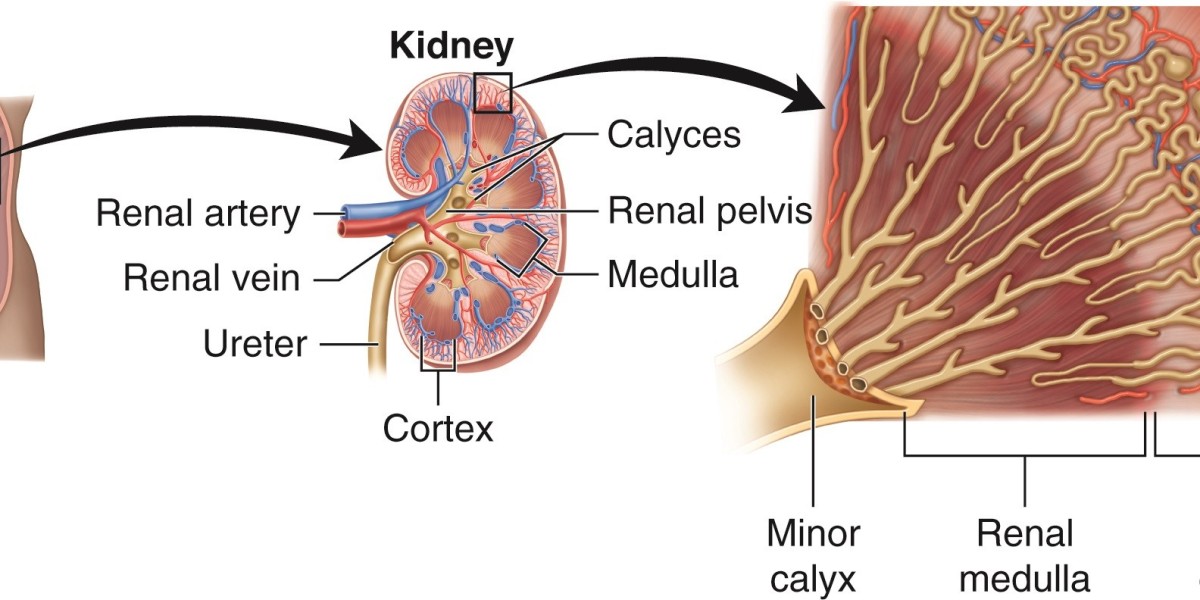Introduction
Chronic Kidney Disease (CKD) is a progressive and potentially life-threatening condition that affects millions globally. Traditionally, CKD management has revolved around controlling risk factors such as hypertension, diabetes, and dyslipidemia. However, recent advancements in pharmacological treatments have introduced new therapeutic options that provide significant benefits beyond conventional methods. Among these, JARDIANCE (empagliflozin) has emerged as a revolutionary treatment. As a sodium-glucose co-transporter-2 (SGLT2) inhibitor, JARDIANCE has demonstrated remarkable efficacy in slowing CKD progression and reducing cardiovascular risks. The increasing JARDIANCE sales indicate its growing recognition as an essential therapy for CKD patients.
For more information on JARDIANCE sales and its market impact, visit the detailed JARDIANCE Market Insights Report.
Understanding Chronic Kidney Disease (CKD)
CKD is characterized by a gradual decline in kidney function, resulting in an inability to filter waste and excess fluids efficiently. It is commonly caused by conditions such as diabetes, hypertension, and glomerulonephritis. The disease progresses through five stages, with Stage 5 CKD, or end-stage renal disease (ESRD), necessitating dialysis or kidney transplantation.
Symptoms of CKD can be subtle in its early stages but may include:
- Persistent fatigue and weakness
- Fluid retention leading to swelling in the legs, ankles, or feet
- Changes in urination patterns
- Uncontrolled high blood pressure
- Loss of appetite and difficulty concentrating
Given its high prevalence and potential for serious complications, effective treatment strategies are crucial to slowing CKD progression and improving patient outcomes.
For more on the transformative potential of SGLT2 inhibitors, including the latest in JARDIANCE research and market trends, download the full report on JARDIANCE Drug Insights.
JARDIANCE’s Mechanism of Action
JARDIANCE (empagliflozin) is an SGLT2 inhibitor that was initially developed for type 2 diabetes (T2D) management. By blocking SGLT2 receptors in the kidneys, it prevents glucose reabsorption, leading to increased glucose excretion through urine. While its primary function was to lower blood sugar levels, extensive research has revealed its additional benefits for kidney and cardiovascular health.
The key mechanisms through which JARDIANCE provides renal protection include:
- Reduction in glomerular pressure: Helps alleviate kidney stress and prevents further damage.
- Lower proteinuria levels: Reduces excessive protein loss in urine, a key indicator of CKD progression.
- Blood pressure regulation: Aids in reducing hypertension, a major contributor to CKD progression.
- Decreased oxidative stress and inflammation: Protects kidney cells from further deterioration.
These combined effects position JARDIANCE as a game-changing therapy for CKD patients, regardless of their diabetes status.
Clinical Evidence Supporting JARDIANCE for Chronic Kidney Disease
A growing body of JARDIANCE clinical trials supports its efficacy in managing CKD and reducing associated risks. One of the most critical studies is the EMPA-KIDNEY trial, which explored the impact of empagliflozin on CKD progression and cardiovascular outcomes.
EMPA-KIDNEY Trial Highlights
- Included over 6,600 participants with CKD, covering both diabetic and non-diabetic patients.
- Demonstrated a significant reduction in kidney disease progression and cardiovascular mortality.
- Lowered the risk of hospitalization for heart failure, providing substantial renal protection.
- Maintained a strong safety profile, with manageable side effects.
The findings from this trial reinforce JARDIANCE’s role as an essential treatment option for CKD patients and have contributed to its growing sales and widespread adoption in nephrology and cardiology.
Benefits of JARDIANCE in Chronic Kidney Disease Management
Slows Kidney Disease Progression
By reducing glomerular hypertension and proteinuria, JARDIANCE effectively preserves kidney function and delays the need for dialysis or transplantation.
Cardiovascular Protection
Patients with CKD have an elevated risk of cardiovascular complications. JARDIANCE significantly reduces heart failure hospitalizations and cardiovascular mortality, making it a dual-benefit therapy.
Blood Sugar Control
For CKD patients with type 2 diabetes, JARDIANCE offers additional glycemic control, reducing HbA1c levels while protecting kidney function.
Reduction in Hospitalizations
By lowering the risk of heart failure and CKD-related complications, JARDIANCE reduces the burden of hospital admissions, improving both patient outcomes and healthcare costs.
Blood Pressure and Weight Benefits
JARDIANCE contributes to modest weight loss and blood pressure reductions, offering further advantages in CKD management.
For more information on how JARDIANCE is reshaping diabetes and heart failure treatment, download the full report on JARDIANCE’s mechanism of action.
Safety and Side Effects
While JARDIANCE approvals highlight its strong safety profile, patients should be aware of potential side effects. Common adverse reactions include:
- Urinary tract infections (UTIs)
- Increased urination
- Dehydration and hypotension
- Genital yeast infections
Rare but serious side effects include diabetic ketoacidosis (DKA) and acute kidney injury. However, the overall risk is low, and the benefits of JARDIANCE generally outweigh the risks when used under medical supervision.
Who Can Benefit from JARDIANCE?
JARDIANCE is particularly beneficial for:
- CKD patients with or without type 2 diabetes.
- Individuals at high risk of cardiovascular disease.
- Patients with a history of heart failure.
- Those looking for an alternative or complementary therapy to traditional CKD treatments.
However, it is not recommended for:
- Type 1 diabetes patients (due to a higher risk of ketoacidosis).
- Individuals with severe kidney impairment (ESRD) or those on dialysis.
JARDIANCE vs. Other Chronic Kidney Disease Treatments
Traditional CKD management relies heavily on renin-angiotensin-aldosterone system (RAAS) inhibitors such as ACE inhibitors (e.g., Lisinopril) and angiotensin receptor blockers (ARBs). While these remain essential, SGLT2 inhibitors like JARDIANCE provide additional renal and cardiovascular benefits. As a result, a combined treatment approach using RAAS inhibitors and SGLT2 inhibitors is emerging as a preferred CKD management strategy.
The continued increase in JARDIANCE sales indicates that healthcare professionals recognize its potential as a leading choice for CKD treatment.
Future of Chronic Kidney Disease Treatment with JARDIANCE
With ongoing research and accumulating clinical data, JARDIANCE’s role in CKD management is expected to expand further. Future research aims to:
- Explore long-term effects on CKD progression.
- Determine optimal dosing strategies.
- Identify potential combinations with other CKD therapies.
- Assess its role in early-stage CKD intervention.
Regulatory agencies may update treatment guidelines to reflect JARDIANCE’s growing importance in nephrology.
For more information on JARDIANCE’s approvals, clinical trials, and therapeutic potential, visit JARDIANCE and SGLT2 Inhibitor Therapies.
Conclusion
JARDIANCE (empagliflozin) has redefined CKD treatment, offering a holistic approach that slows disease progression, reduces cardiovascular risks, and improves patient quality of life. With strong clinical backing, growing sales, and increasing regulatory approvals, JARDIANCE is well-positioned to become a standard therapy for CKD worldwide. If you or a loved one has CKD, consulting a healthcare provider about JARDIANCE for Chronic Kidney Disease could be a crucial step toward better kidney health.
Related Reports
- SGLT2 Inhibitors Market Size, Target Population, Competitive Landscape & Market Forecast - 2034
- Chronic Kidney Disease Market Insight, Epidemiology And Market Forecast - 2034
- Diabetic Kidney Disease (DKD) - Market Insight, Epidemiology And Market Forecast - 2034
About DelveInsight
DelveInsight is a leading business Healthcare consultancy and market research firm specialized in life sciences. It assists pharmaceutical companies by offering comprehensive, end-to-end solutions to improve their performance. Access all our healthcare and pharmaceutical market Competitive Intelligence Solutions.



